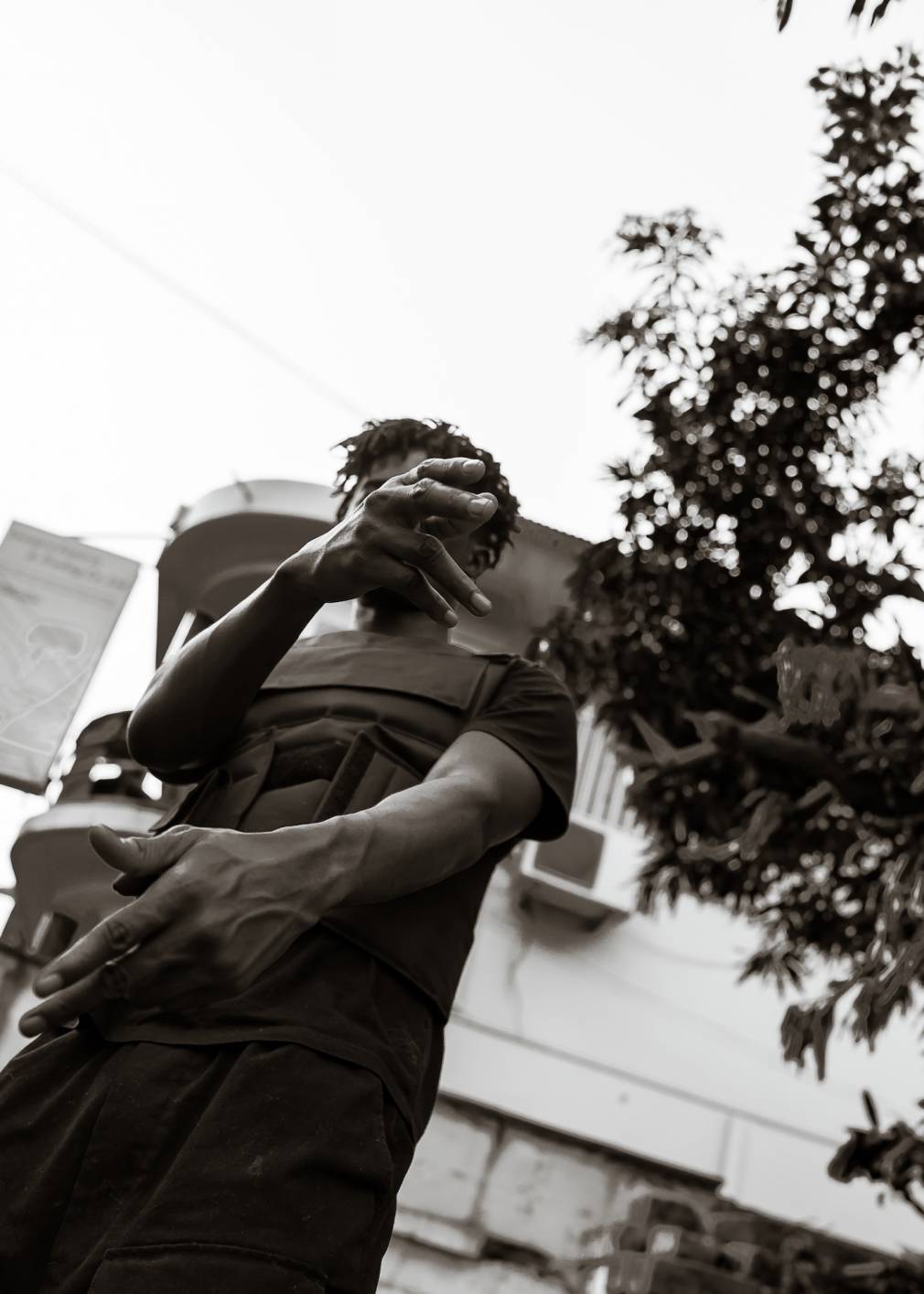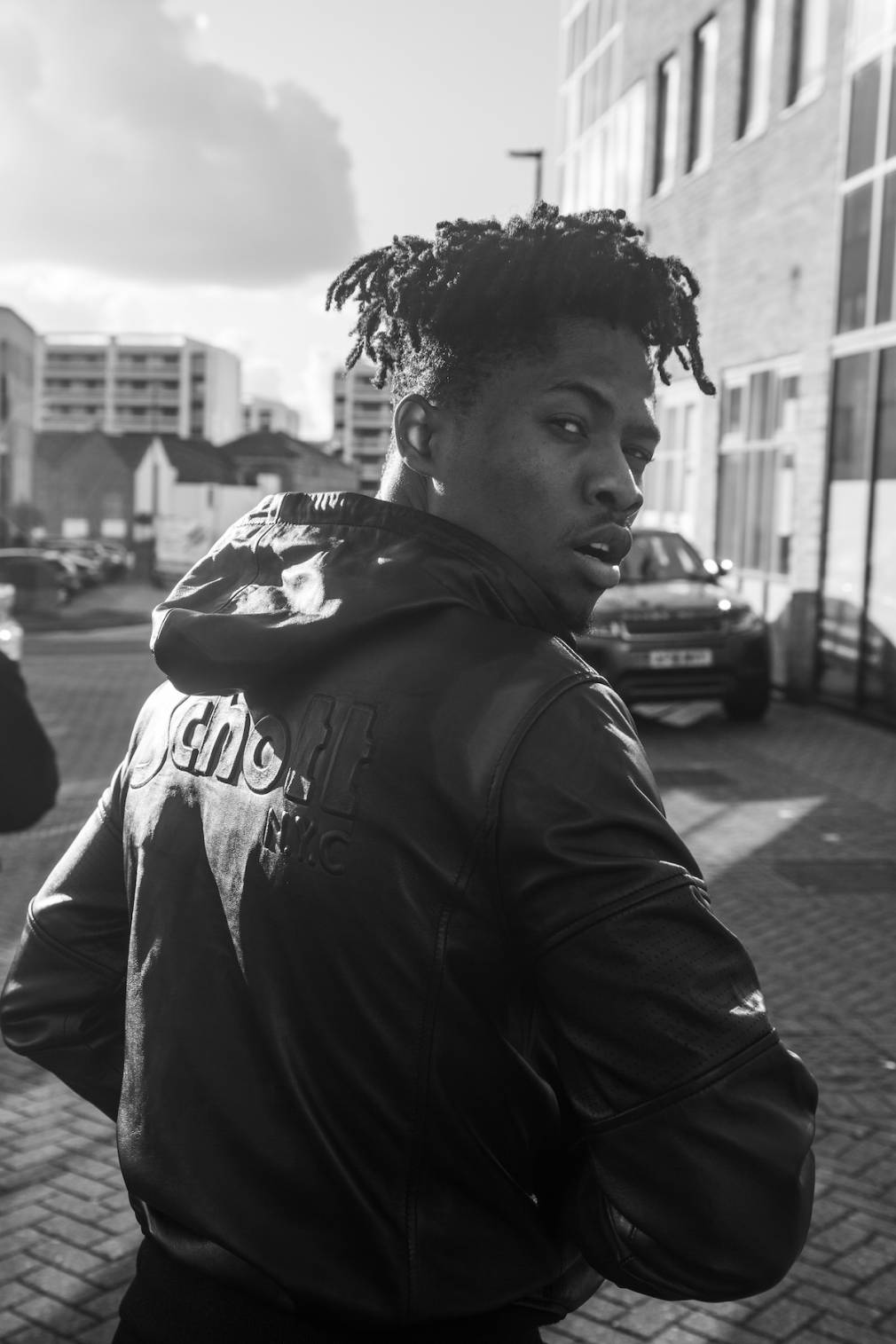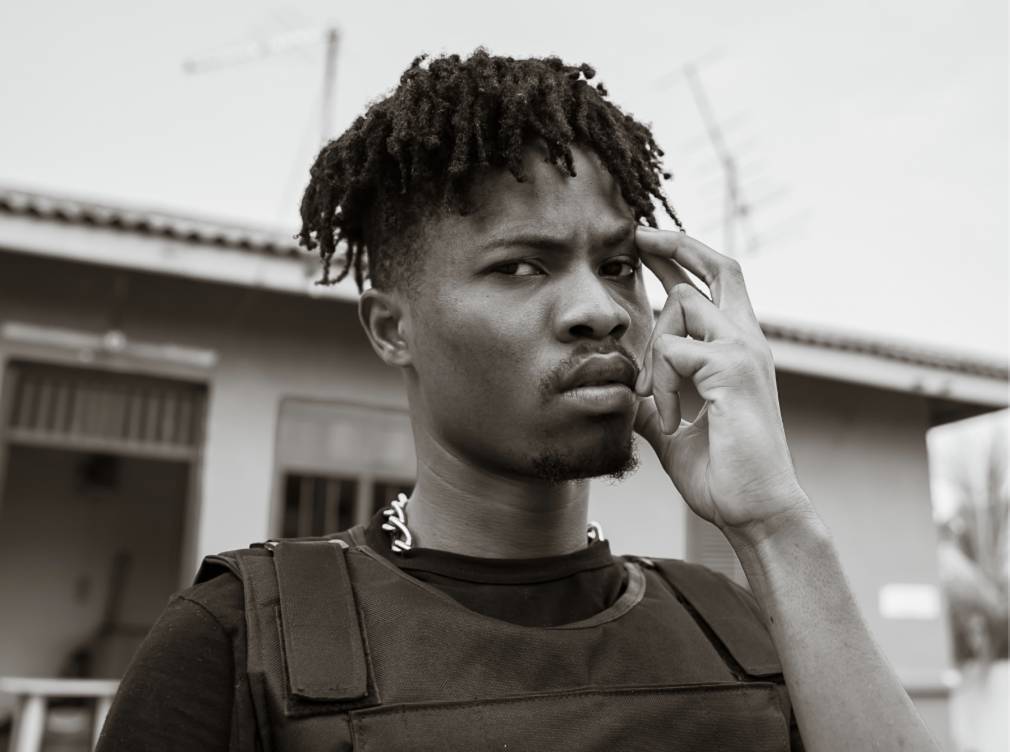In five short years, Ghana’s young hip-hop phenomenon experienced a swift ascension into the popular sphere. PAM met with Kwesi Arthur, as polite and cheerful as ever, despite his ferocious status within rap.
In 2010, in the city of Tema, outside Accra – Ghana, a friend made Emmanuel Kwesi Danso Arthur listen to Drake’s Thank Me Later album. Still in high school, the young man tells his friend: “yo chale (dude)… I think I can do this too”. 10 years later, Kwesi Arthur is a massive rap phenomenon in Ghana and West Africa. Today, the youth sing his hits like anthems in Twi and pidgin, he flies to the US for the BET awards and collaborates with West Africa’s finest (Mr Eazi, Santi, Stonebwoy…). PAM had a chat with Kwesi Arthur, always smiling and polite but definitely the fiercest of his country when it comes to rap.
An artist molded in the city of Tema
“I was born in Tema and spent my whole life there”, the young artist smiles proudly at our first question. Tema and its vibrant atmosphere are at the centre of Kwesi Arthur’s music, filled with references to his beloved Community 9. A city with only 300 thousand inhabitants, it is known for its huge industrial port complex, but more importantly, it is home to some of Ghana’s greatest artists, from “Rap King” Sarkodie to the iconic hiplife duo R2Bees. Kwesi Arthur is clearly on his way to join this Tema hall of fame, and he’s never forgotten where he came from. His growth in this former fishing village may have been tough, but the rapper mostly remembers the fun of his childhood: “besides school, we played all the time. We would play in the sand, go to the football park, look for mangos, push tires in the streets… It was super cool”. He admits, however, that there were hard times too: “at that time, honestly, it could have been better. Sometimes we couldn’t feed ourselves, and it was always hard to pay the school fees”.
But Kwesi is an optimist and a pragmatic person, and throughout the interview, he refuses to portray himself as a victim of any sort. The challenges he faced in Tema are immediately swept aside, “everything happens for a reason”, he claims. “If I wasn’t in that situation during my childhood, I wouldn’t be where I am right now, have the thoughts I have, be able to be who I am. It wasn’t really challenging”. His father used to do electrical repairs and work on radio sets, so the family house’s day-to-day was filled with music from the Ghanaian radio: Kojo Antwi, Amakye Dede… “and I had an uncle in the house who used to play DMX”, Kwesi laughs at the musical contrast. “And 2Pac and Biggie too!”. When he completed Secondary School in Tema, his results were blocked because of unpaid school fees which prevented him from registering at the University of Ghana (Accra).
But once again, his pragmatism helped him quickly move on. “I would have wanted to study, but there was no money for that! So I just made use of what I had. There was this studio at Community 9. I went to the owner and I told him to employ me to manage the place. He employed me, taught me how to record people, how to record beats and stuff”. This proactive attitude is clearly a feature garnered from the Tema lifestyle. “It’s not that easy to find a job here”, Kwesi explains to me. “And even if you find a job, they pay like 100 dollars a month which is very bad. So most people just usually start up their own thing to make money”.

From the neighborhood to the world
In 2015 Kwesi met Ground Up Chale, which became a decisive encounter for his career. He describes it as a Ghanaian “platform helping talented people be whoever they can be”. The group owns a powerful Youtube channel and a recording studio. The rapper quickly started to hang out with them, and they helped him “develop his craft”. It isn’t difficult to see that Ground Up is something that Kwesi holds dear. At the time, it was a young, dynamic and ambitious Tema organization determined to make themselves heard, just like young Kwesi working in the studio. Even today, known across the country, he tries to give back the help he received from Ground Up: “it is my responsibility as someone who has a following to help others as well. So if I like a video, I’ll just push it where I can”. Only counting on themselves, Ground Up and Kwesi start bombarding social media with freestyles, in a country where one of the major channels to popularity is the radio. Again, an example of Tema pragmatism: “we didn’t have plugs at the radio. Social media is the future, everyone is on it. You might as well make good use of it”. In 2017, on the group’s Youtube channel, the single “Grind Day” was released and became Kwesi’s major breakthrough. The track is a powerful and ambitious, often described as a “motivational video”. “I just went all in”, Kwesi tells me with a big smile. Six months later, it got a remix with rap heavyweights Sarkodie and Medikal.
The period that followed is both difficult and exciting. The young artist didn’t work at the studio anymore and earned occasional income by recording other artists. It was only when asked that he admits the difficulty of the time: “It wasn’t easy at all. Sometimes I would see my friends in school and the progress they were making in their life, but I was still in the streets”. Once again, “everything happens for a reason. And if you want something, you need to sacrifice”. His efforts were soon rewarded. He released his first EP “Live from Nkrumah Krom” in June 2017, a widely successful project. It had a huge impact in Ghana, and managed to cross transcontinental borders. In June 2018, Kwesi Arthur became the youngest Ghanaian artist to be nominated for a BET Award. With a big smile, the rapper recalls this experience: “It was a great feeling. We went all the way over there, and it taught me a lot. I still need to put more in who I am.”. Rap is currently one of the major genres on the continent, and we can ask ourselves if it still really means something to be “validated” by America. “If that comes in as well, it’s good for us. The more the people, the better it is”, he explains. “That’s the goal: get our sound global. They are definitely going to recognize us soon”. Who does he actually want to reach with his music? “Oh, the world”, he laughs. “The world”.
The weight of our words
Kwesi Arthur’s second EP LFNK Vol. II: Home Run, released in 2019, deeply cemented his place in the Ghanaian public sphere. Certain tracks lean into afrobeats like “Nobody” featuring Mr Eazi, which can be heard everywhere in Accra. When talking with young Ghanaians, the closeness between the rapper and his supporters is evident, often described as the new “King of the youth”. “To be honest… I don’t know why I resonate so much with them”, he breaks into laughter, thinking we expected a better answer. “Maybe they connect to my story, my struggle. Many people aren’t employed, and in the period I struggled I was making songs about it”. Another reason could be the genuine authenticity of the rapper. With his BET nomination and growing international exposure, it would be easy for him to switch to English in his lyrics and gain a new public. “But that wouldn’t be me”, he answers. “I speak in Twi and pidgin on a normal day to day. And I know if I don’t do it for my people, no one from America will do it for us”. The same goes for his style: despite being one of the top rappers in Ghana, we never see Kwesi Arthur with expensive clothes, chains or bragging about his money. “This is who I am. If I wanted to wear chains, I would wear them but I just like being free”. The last time he caused a mini-scandal was when he was seen riding a motorbike without a helmet on the highway. He smiles shyly at the anecdote: “we are still young, so we are bound to make mistakes. I find myself in the public eyes and they expect me to act a certain way forgetting I am human too”. His life has changed, though he is still an authentic young Tema guy. But, once again, no self-pity: “I guess that’s what I signed up for, so I can’t complain”, he shrugs. “And it’s not hard because I’m usually home, in my zone. I don’t really miss much from my old life, maybe just playing football in the hood”.
Staying true to Tema does not keep Kwesi from having bigger ambitions. Recently, he released the track “Revolution Sound”, an incisive critique of Ghanaian politics. These kinds of statements are uncommon in popular rap. “Someone had to talk about it, for the people. Musicians have a part to play in being the voice of the people, because not everyone has their talent”. He continues: “over here if you make political songs people will bash you. They will think you do it for the opposition. But I like to speak from a nation building point of view, to see Ghana become a better place”. Is Kwesi Arthur slowly appropriating his new status as a youth leader? “Not necessarily”, he answers, looking amused. “People tend to say that but I’m just making my music. Being a leader has so much responsibility…”. Even if he is just “making his music”, his art is having an impact on the urban Ghanaian audience, and it’s them who will eventually decide if Kwesi will be their leader or not. We can only hope it will allow him to continue releasing great music. After two successful EPs, an “album is in the works right now”. We wrapped up the interview, and exchanged safe wishes. Before leaving, Kwesi Arthur, despite his million followers and his superstar status, calls to me: “hey man, what’s your Instagram?”





